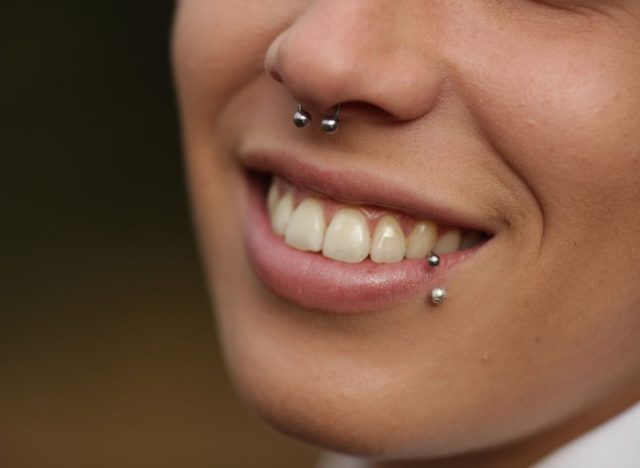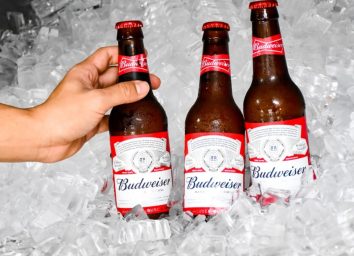8 Controversial Rules Starbucks Employees Have to Follow

A Starbucks coffee shop can be a busy place, with dozens of complicated orders every few minutes during the morning or lunch rush and dozens of menu items that must be prepared with precision to keep the customers happy. And with a stunning 15,430 Starbucks spread across America as of 2022, that's a lot of orders for a lot of customers.
So it makes sense that Starbucks workers have a number of rules they have to follow to keep such a fast-paced juggernaut of a company on the rails. But some of the specific rules Starbucks employees follow will surprise and confuse you nonetheless. One of the harshest policies the company places on its workers? An almost exclusion-free requirement to say yes to customers, even though Starbucks customers can be a notoriously rude and demanding lot.
Here are eight controversial rules Starbucks employees must follow.
Bright colors are not to be worn

Beyond the apron and, in some places, a hat or visor, Starbucks employees don't technically have a uniform. But there is a dress code. The staff are told to wear shirts in the "subdued" color range like gray, black, white, or dark blue. At least the company reversed course on barring all displays of political sentiments, allowing BLM shirts and pins as of mid-2020, reported The New York Times.
Temporary hair dye is not permitted

Starbucks workers cannot come to work with their hair dyed one color one day and another the next. While colorful hair is permitted, temporary hair dying (or streaking or frosting) is not, according to a Starbucks Dress Code Lookbook. While this policy may seem limiting, it is more about food safety than controlling expression.
Workers can't move from one station to another

While Starbucks workers are on the clock, they are to remain in their spot, according to Worldation. Baristas are not allowed to move from one set of duties to another during a given shift, so even if one station is suddenly very busy while another is slow, they are not supposed to change activities to help out.
Workers cannot allow customers inside the stores even a bit before or after hours

According to Business Insider, Starbucks employees must strictly enforce store hours. They are not allowed to let anyone enter the store even a minute before its posted opening hours and they must kick everyone out the minute the store closes for the day.
Facial piercings are not allowed and earrings are limited

If you like to express yourself through piercings, you'd better feel expressed enough with a maximum of two earrings per ear and a nose stud, according to Yahoo! Any other piercings must be removed or covered up while the worker is at the shop. Rings (other than one wedding band) and bracelets are also banned. And if you have facial or neck tattoos, you won't be getting a job as a Starbucks barista, per the rules laid out in a company lookbook.
Baristas can't say no to customers

Starbucks workers are obliged never to say no to a customer even when said customer is making ludicrous demands, which happens all the time, reports Worldation. So when someone demands a 10-step customization or asks for a made-up drink from the secret menu, the worker just has to do their best to accommodate the person even if the demands are almost impossible to meet.
Cold drinks are to be shaken 10 times

Starbucks baristas are supposed to follow a very specific formula for preparing mixed drinks like a Strawberry Açaí Lemonade Starbucks Refresher Beverage, and that formula involves shaking the drink no fewer than 10 times to mix it. Though in practice, most such drinks will get many fewer shakes than 10.
Even employee's family members can't invest in competitors

While limiting, it makes sense that Starbucks employees are forbidden from investing in competing companies. If a worker owned a few hundred shares of Peet's Coffee or Dutch Bros, for example, he or she may be more interested in the success of these other chains over Starbucks' performance. But per the Starbucks Standards of Business Conduct handbook, even a worker's close relatives are forbidden from "making a substantial direct investment in such a firm" without the employee risking termination.









